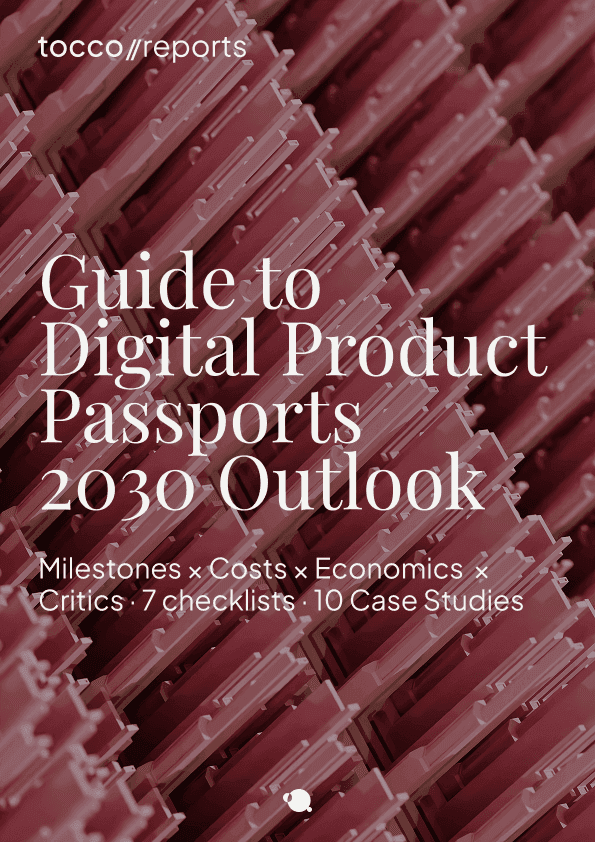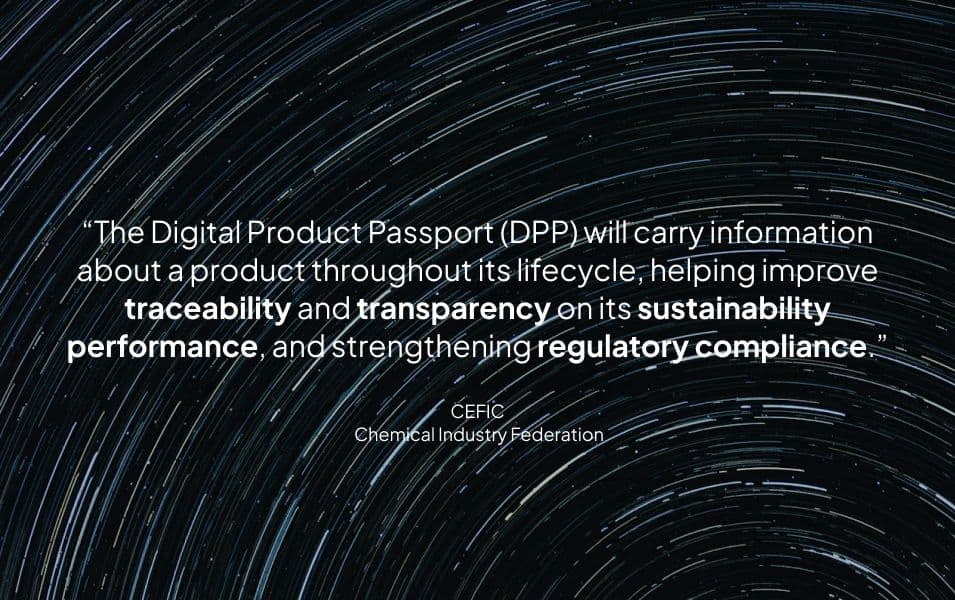Tocco Report: Guide to Digital Product Passport 2030 Outlook
Milestones × Costs × Economics × Critics · 7 checklists · 10 Case Studies
Every product is about to come with a memory. Under new European law, goods entering the market will carry a digital identity linking physical items to verifiable data, from material origin to carbon footprint and repairability. The Digital Product Passport (DPP) transforms compliance into infrastructure, reshaping how trade, sustainability, and data converge.
Mandatory first for batteries in 2027, then textiles, tyres, and construction materials, the DPP unifies product information across borders and systems, letting regulators, recyclers, and consumers read from the same source of truth. What began as an environmental tool is fast becoming the foundation of a data-driven material economy.
This report by Tocco editorial team decodes the regulation’s structure, timelines, and global implications, translating policy into practical intelligence for manufacturers, designers, and policymakers preparing for the age of verifiable products.

Explore This Report
Start with the Free Version or unlock the Full Report with deeper insights, case studies, and extra content.
- The EU’s DPP Framework: What it is & when it applies
Understanding the DPP Rollout - Architecture & Data Model: How the DPP actually works
How products become traceable - 7 Actors, 1 DPP System: Understanding legal roles
An DPP Complicance Checklist for operational readiness - One Market, Many Passports:
Inside interoperability puzzle
How DPPs connect the dots between overlapping laws - The Economics of DPP
Capability Buildout, Decarbonisation & Circularity, Failure Modes & Controversy - Ten Notable Case Studies
Tracing what works, and what fails - Further Readings & DPP across the World

Materials in focus
Explore the innovative materials shaping the future

Biodegradable

Recycled

Bamboo

Mycelium

Silk
What's inside?
Everledger × Ford: Blockchain Battery Passport Pilot
(USA · UK · 2019–2020)
Ford partnered with UK-based Everledger to test a blockchain-based battery passport, tracing cobalt from certified mines in the DRC through to finished EV batteries. The system captured every supply-chain step, from smelting and assembly to recycling, in a tamper-proof digital record aligned with the Global Battery Alliance (GBA) framework.
The pilot proved that digital traceability can verify ethical sourcing and integrate directly into procurement workflows. While limited in scale and later challenged by Everledger’s closure in 2023, it laid key groundwork for the Battery Passport requirements under the EU Battery Regulation (2027) and informed global industry standards.
 something
somethingOther Available Reports
Expand your knowledge with our curated collection of industry-leading insights
Latest Design Stories
Weekly highlights from our community of innovators and pioneers